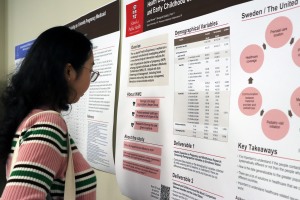Don’t wait until after graduation to make a difference and build your resume. Guided by core advisors and faculty experts in your area of interest, you will design and carry out summer-long projects with public health partners locally and around the world.
Brown’s strong community ties and global outreach connect you to field-based projects, equipping you with the skills and insight needed as graduates and public health professionals.
We prepare future leaders with the vision, expertise and resilience to address the public health challenges of today through careers of purpose and action. Join a dynamic, forward-looking institution where your work will shape the future of public health education and practice.
